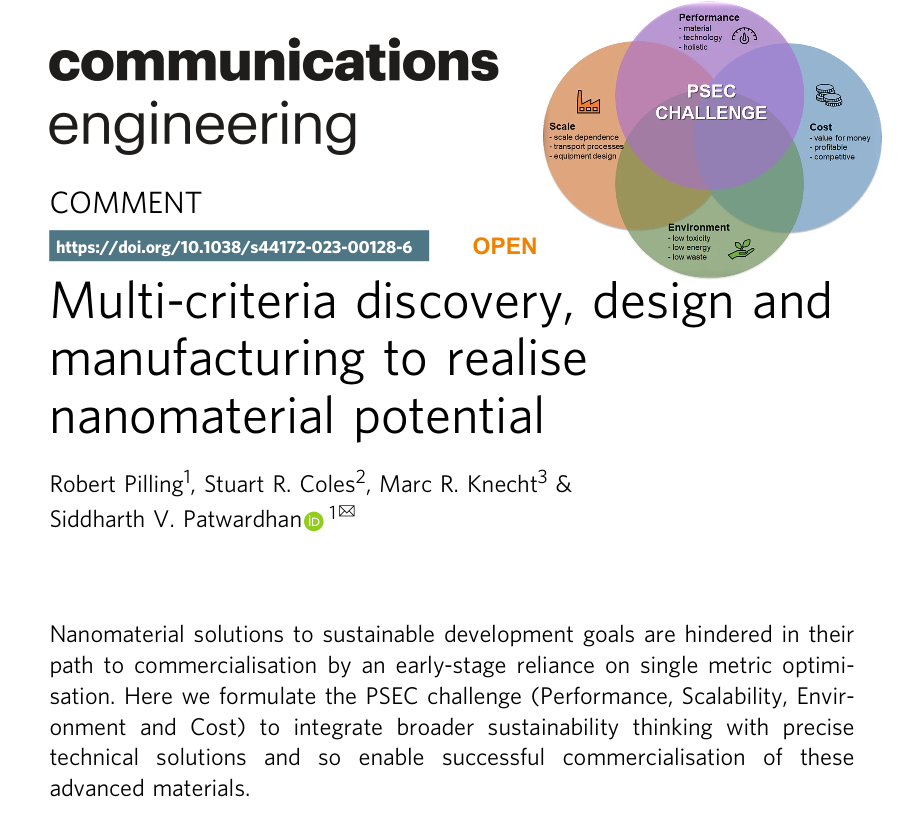PhD openings in the group
We also have a number of opportunities in the design and application of green nanomaterials in areas including energy materials, environmental engineering and drug delivery systems. Check out latest on these topics in the Research tab. If you are interested, see application information below.
|
Read about PhD life from an interview with Eleni Routoula, a recently graduated PhD student from the group. |
Application and other information
Interested candidates should write to Professor Patwardhan via email. In the application, include
Funding only covers UK/EU fees and stipend in most cases. Candidates from outside the EU should include, in their application, their plans to cover the difference in fees. If English is not your first language then you must have International English Language Testing Service (IELTS) certificate with an average of 6.5 or above and at least 6.0 in each component.
Research environment:
This PhD project is part of a larger EPSRC Fellowship, which includes a post-doctoral researchers, another PhD student, a technician and several academic and industry collaborators that you will have the opportunity to collaborate with.
This project is inherently multidisciplinary and you will receive training in many relevant techniques and transferable skills. You will contribute to lab meetings, outreach activities and the vibrant PhD communities across the University.
The host department has a thriving environment within one of the UK’s top Faculties of Engineering with a vibrant research culture.
The Green Nanomaterials Research Group is internationally leading in the design and green manufacturing of functional nanomaterials. The primary supervisor has received four Dedicated Outstanding Mentor and SuperVisionary awards, recognising good all-round supervision and mentoring. You will participate in training on Professional Skills for Research Leaders, which includes areas such as management, science communication, supervision and scientific writing. There is a potential for visits to/placements with the academic and industry partners.
Interested candidates should write to Professor Patwardhan via email. In the application, include
- the topic/project of your interest,
- your recent CV and highlights of your achievements,
- explain why you are suitable for this PhD position,
- explain why you wish to be part of the Green Nanomaterials group.
Funding only covers UK/EU fees and stipend in most cases. Candidates from outside the EU should include, in their application, their plans to cover the difference in fees. If English is not your first language then you must have International English Language Testing Service (IELTS) certificate with an average of 6.5 or above and at least 6.0 in each component.
Research environment:
This PhD project is part of a larger EPSRC Fellowship, which includes a post-doctoral researchers, another PhD student, a technician and several academic and industry collaborators that you will have the opportunity to collaborate with.
This project is inherently multidisciplinary and you will receive training in many relevant techniques and transferable skills. You will contribute to lab meetings, outreach activities and the vibrant PhD communities across the University.
The host department has a thriving environment within one of the UK’s top Faculties of Engineering with a vibrant research culture.
The Green Nanomaterials Research Group is internationally leading in the design and green manufacturing of functional nanomaterials. The primary supervisor has received four Dedicated Outstanding Mentor and SuperVisionary awards, recognising good all-round supervision and mentoring. You will participate in training on Professional Skills for Research Leaders, which includes areas such as management, science communication, supervision and scientific writing. There is a potential for visits to/placements with the academic and industry partners.


